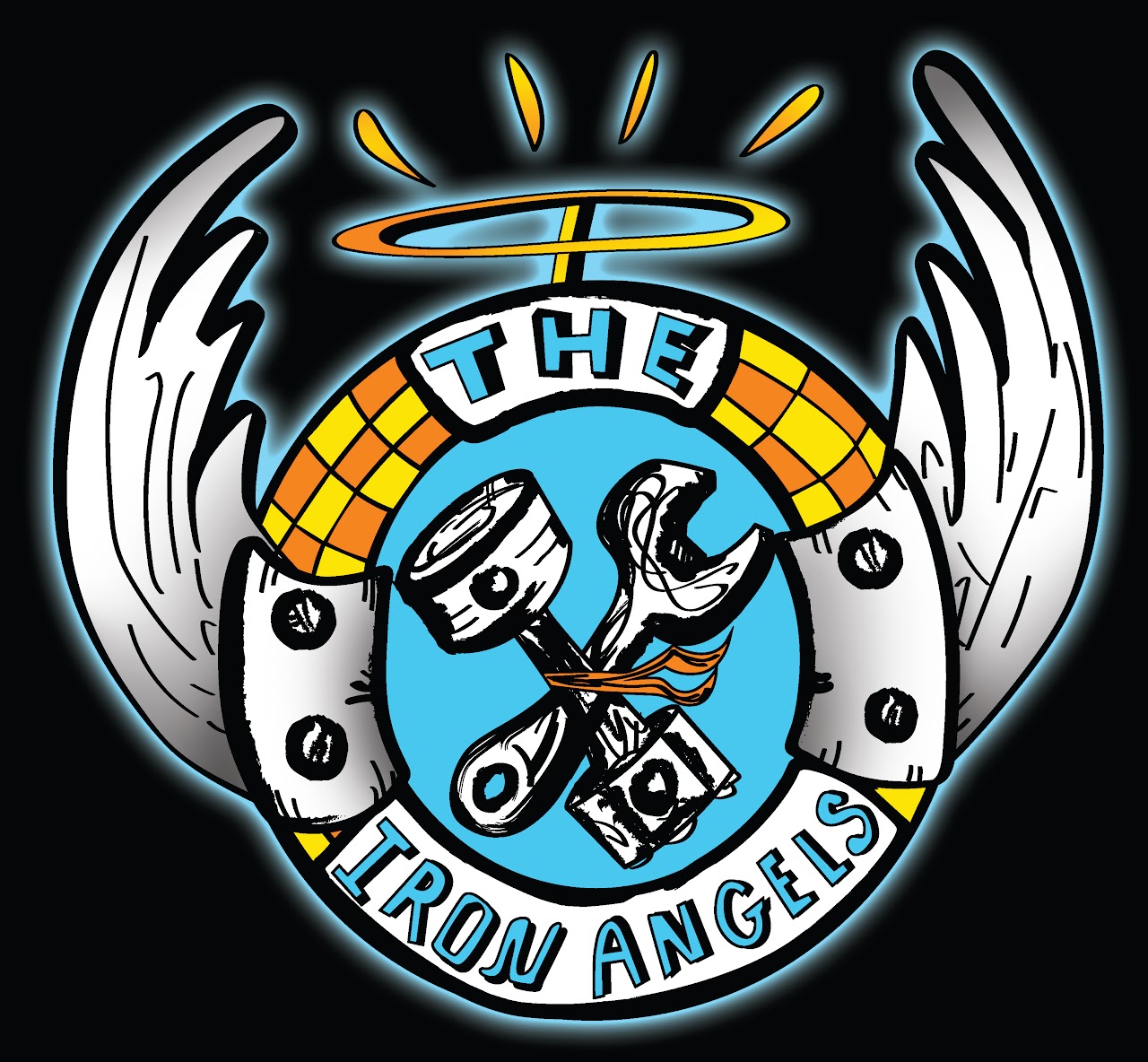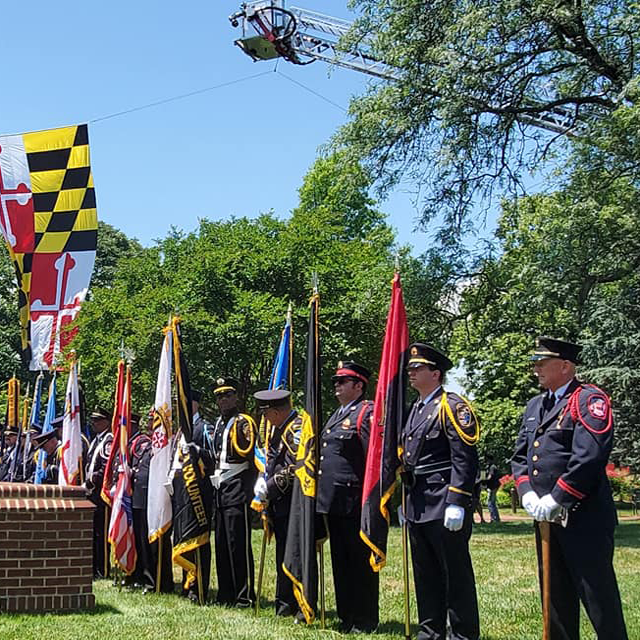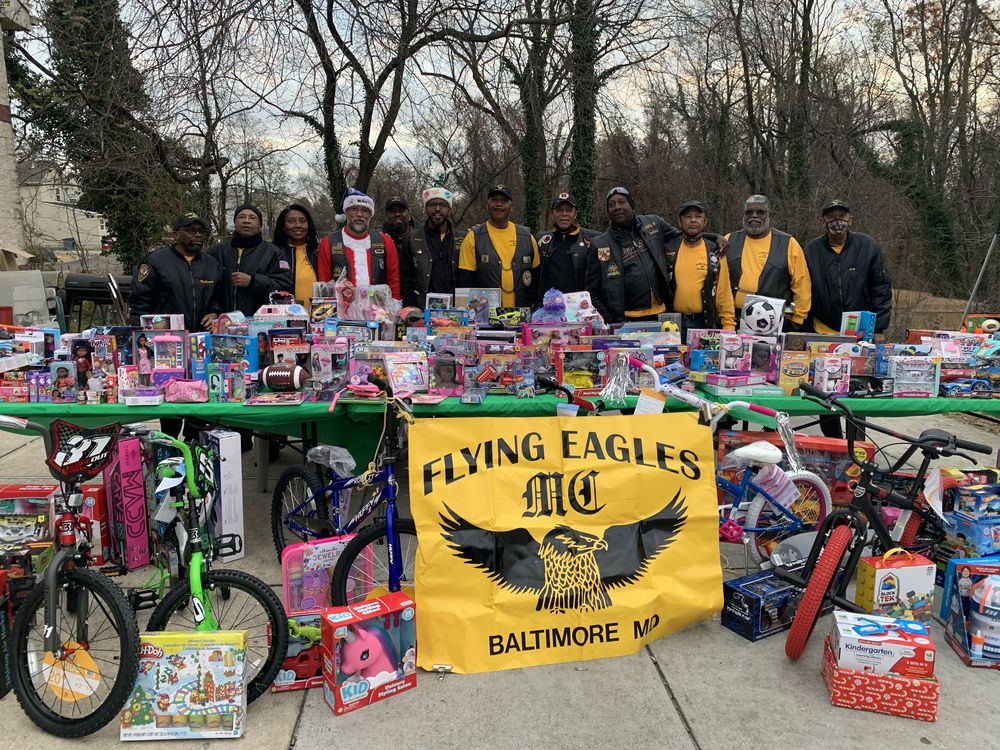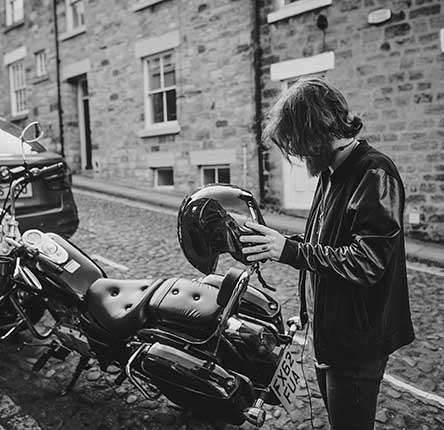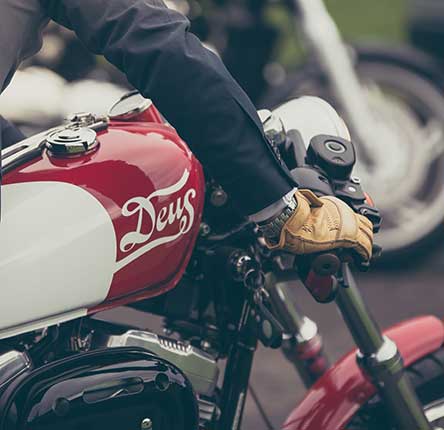It is the night,
my body’s weak,
I’m on the run, no time to sleep.
I’ve got to ride, ride like the wind to be free again.
– Christopher Cross, Ride Like the Wind
Richard had been struggling for nearly a decade. He served more than twenty years in the Army National Guard with two deployments to Iraq and served 25 years in law enforcement. All of the experiences had taken their toll and Richard was nearly ready to call it quits. He had already quit on one thing, the possibility of ever being happy again.
“I had given up on a lot of stuff,” he says. “there was no relationship with my three daughters, no conversations with the kids for nearly ten years. With my wife, our marriage was pretty much at an end. If you saw us a year-and-half ago you would never believe we would even be together now.”
Richard was running out of chances, running short on hope and running away from anyone that loved him. He was suffering from PTSD, Post Traumatic Stress Disorder. PTSD, once called shell shock or battle fatigue syndrome, is a serious condition that can develop after a person has experienced or witnessed a traumatic or terrifying event. Richard had witnessed his share of traumas, as do so many who go into the battles of war, live every day fighting to maintain justice on the streets or those first-responders who are the lead men and women on the scene of terrifying events.
Like so many, Richard had reached the end. Then he found a new beginning: The Motorcycle Relief Project. A light was about to enter the darkness, all fueled by a ride to recovery. Richard was in desperate need of relief.
“I don’t remember how I found about the program,” says Richard. “Maybe it was an ad on social media. But when I saw it it looked like something I could really use, because I had given up. I had been through several other programs, but still had a hard time, I almost didn’t do this one. The other programs had not been effective for me. But this got my attention because I grew up riding motorcycles. I actually used to race competitively, but for the past ten years I gave up enjoying anything, including riding. I couldn’t have fun, everything was miserable.”
The answer to Richard’s greatest life challenge was launched a little more than four years ago by Tom Larson. Tom had already been a part of a non-profit called Healing Waters, and was ready to move on to another challenge. Although not a veteran, Tom, who also suffered from a form of PTSD, had been through treatment in his own life. He was aware of how therapeutic it was to get on his motorcycle and ride when he needed to relax and blow off some steam. Mike Bobbit, the operations manager for MRP, (Motorcycle Relief Project), says Tom had an idea. “A light bulb moment happened for Tom,” he says. “He’s an avid rider and decided that riding bikes could help out the veterans and first responders, especially those suffering from PTSD.” (https://www.motorelief.org/)
Mike continues, “It’s called wind therapy. The riders, we take eight in a group, along with four volunteers, spend a week doing rides on adventure bikes, 250-400 miles-a-day. We ride off-pavement, riding on gravel three of the days and then back on pavement for a couple more. In the evening there are family-style dinners and workshops, based on a curriculum we developed over the past few years. At the end of every ride, we do a questionnaire and get feedback on the workshops and tweak them as needed. It’s a pretty good program, most everyone feels dialed in and it’s been effective in really reaching the folks in the program.”
It all adds up, the riding, the workshops, and the wind therapy. Mike describes wind therapy this way: “one of the common themes among motorcyclists is you can’t be in a bad mood on a motorcycle. It’s like when you have a bad day at work, but then you walk out into the parking lot and see your bike. You get on the road and feel the wind in your face and then all the negative voices and dark thoughts go away. And when you experience the off-pavement ride, as we do with our rides, you don’t have to deal with other vehicles and the road rage around you. We have straight up street riders who take part in our program and when it’s over many go out and buy adventure bikes.”
It’s that wind therapy and the camaraderie of others who’ve experienced similar trauma that attracted Richard to the program and made a significant difference in his life.
“I think for me it was the non-clinical atmosphere,” says Richard. “It was a different approach from a group of people that really cared, had heart and could be honest and open with discussions and conversations and workshops. It’s a group of people who understand because they have been there, rather than sitting in an office setting talking about the consequences of PTSD with flip-charts and graphs. It was great to be with like-minded people. We did a workshop the night before the first ride and so the riding was beyond helpful. It frees up your mind when you’re riding… the beautiful scenery, everything about the wind and the open air. By the end of the first day, it was the first time I had enjoyed myself in a long, long time. I was doing something I used to enjoy, had a great day doing something I really liked and while riding, spent time thinking about things we talked about in the workshop.”
Richard says MRP is not a “magic pill”, but he says it was the biggest boost to his life thus far. “My problems were not going to go away overnight,” says Richard. “But it set me on the path to feeling better and progressing forward and out of the slump I was in for ten years. Ever since then there has been an upward trajectory in my life, prior to that I couldn’t get out of the hole I was in.”
Since 2014, the Motorcycle Relief Project, which is a 501(c)3 non-profit based, has held 25 rides in their home state of Colorado and in Tuscon, Arizona during the colder months. Mike Bobbit, who is a 30-year-veteran of the Air Force, (Chief Mass Sergeant, Retired), says 178 riders have been through the program so far. “We don’t teach our participants how to ride,” says Mike. “We like them to have at least a year of riding experience and have their own bike if possible. We do a 20-to-30 minute interview with the prospective candidates, first to make sure they have the riding experience and then to make sure they are a good fit for the program.”
Mike serves MRP completely as a volunteer. He’s been riding since high school and has ridden his bike in 49 states. His first ride with MRP was in 2016, Relief Ride number five.
“I just loved what the program is doing,” says Mike. “I don’t suffer from PTSD, but I wanted to play a bigger role and I’ve been a volunteer ever since that first ride. What struck me about the first ride was the bonding. One of the first things you realize about folks in the military is they can adapt because you are used to getting transferred to a new unit and then forced to fit in with people you’ve never met before. When you show up for the ride you are there with strangers, but you have a common bond, a common language. We have a get-to-know the first night of the ride and there are always one or two guys who break down emotionally and throw their sh*t out there the very first night. You never know what you are going to get until everyone shows up, every ride is different. We try and draw folks who are ready to share their stuff and deal with it.”
Mike says relief is the appropriate word for the project because it gives the veterans and first-responders relief from the pressures they have been feeling and they can unload and go back home to talk to their wives, significant others and family. “Before the ride, many of them only talked about their issues with their battle buddies, or didn’t talk about it at all, certainly not with their wives or families,” says Mike. “A year down the road, after the ride, we have some participants who lose 70-to-80 pounds because they were eating and drinking their lives away and not dealing with their trauma. Some of the riders say it is the best program they have experienced in their lives.”
It was just that way for Richard. After ten years of living hell, locked in his own shell, the Motorcycle Relief Project brought relief to him and to his family, so much so that Richard’s wife reached back out to Mike and the volunteers after her husband returned home from the ride.
“Three weeks after his ride we get a call from Richard’s wife, Shauna,” says Mike. “She said she wanted to know what kind of voodoo spell we put on him because for ten years he had been closed up, grouchy and gruff and now he was talking to his kids and sharing with the family. I never get enough of that stuff. That’s why I give so much to the program. To see the riders in their moments of vulnerability, finally dealing with their demons, ready to face their challenges, the ones they were facing alone, but are now doing it with guys dealing with similar sh*t, that changes people’s lives. I get goosebumps just talking about it.”
MRP has also hosted two female veteran and first-responder rides as well. Mike says they won’t integrate the rides with males and females because of the statistics – about 80% of the women deal with sexual assault and wouldn’t open up about their experiences if surrounded by other men, whether military comrades or not. He says the average age of the riders is about 38, with many of the veterans have dealt with their PTSD or similar traumas for ten years or more. He says they’ve had riders in their 20’s and as old as 76, even Vietnam veterans who have never dealt with their issues.
The biggest challenge for MRP, as it is for any non-profit, is the funding. The program relies on donations. Only Tom now takes a very small salary, everyone else is a volunteer in the program. “We do one big fundraiser each year in December,” says Mike. “We have a dinner and silent auction at Performance Cycle in Denver, which shuts down their doors to host the event. Last year we raised just under $100,000, but it’s only about a third of what we need. From there it’s beating the bushes to get donations. We have great partners in the motorcycle community, including BMW, since we ride their adventure bikes, but most of the partners donate stuff, which we so appreciate, but not dollars. Our bikers don’t pay for anything to take part in the ride, except the travel cost to get to Denver or Tuscon, whichever location we are using that part of the year. We have more than 100 people on a waiting list to participate in the MRP and we are working through it, but we are sticking to our guns to only take eight on a ride at any time, because if you take on more, we’d never have the time in our workshops for everyone to share their stories and work out their stuff.”
While MRP can’t serve everyone, Richard, who benefited so greatly from the program, has advice for anyone dealing with PTSD.
“Know you are not alone,” he says. “If you are struggling, don’t get to the point I did, seek help. We’ve got to find ways to support each other. When we go into the military and law enforcement, it seems to be a cookie-cutter approach. It’s like one size fits all, but in recovery, it’s not one size fits all. We must care about and support each other and find ways to connect with each other, but never, never give up.”
Mike echoes Richard’s thoughts: “Folks struggling with PTSD and depression shouldn’t wait so long to find a way to deal with it. Learn from the folks whose lives have been changed, like those taking part in the Motorcycle Relief Project. We’ve seen lives changed so dramatically, though they may never fully recover, it at least initiates change and lets their families back into their lives. Don’t spend your days pissed off and isolated. Whether it’s a motorcycle ride or fly fishing or whatever the passion is, find it, go do it and let your sh*t out and don’t live in darkness. Find the outlet to help you move forward and get you back to living life again.”
After all, the ride of life is one to be cherished.
To support the Motorcycle Relief Project, please visit https://www.motorelief.org/donate
This story, as well as all of the others on our website, are written by Mark Brodinsky, an Emmy-Award winning television producer, speaker, popular blogger, and published author. You can find more information about Mark on his website at http://markbrodinsky.life/

